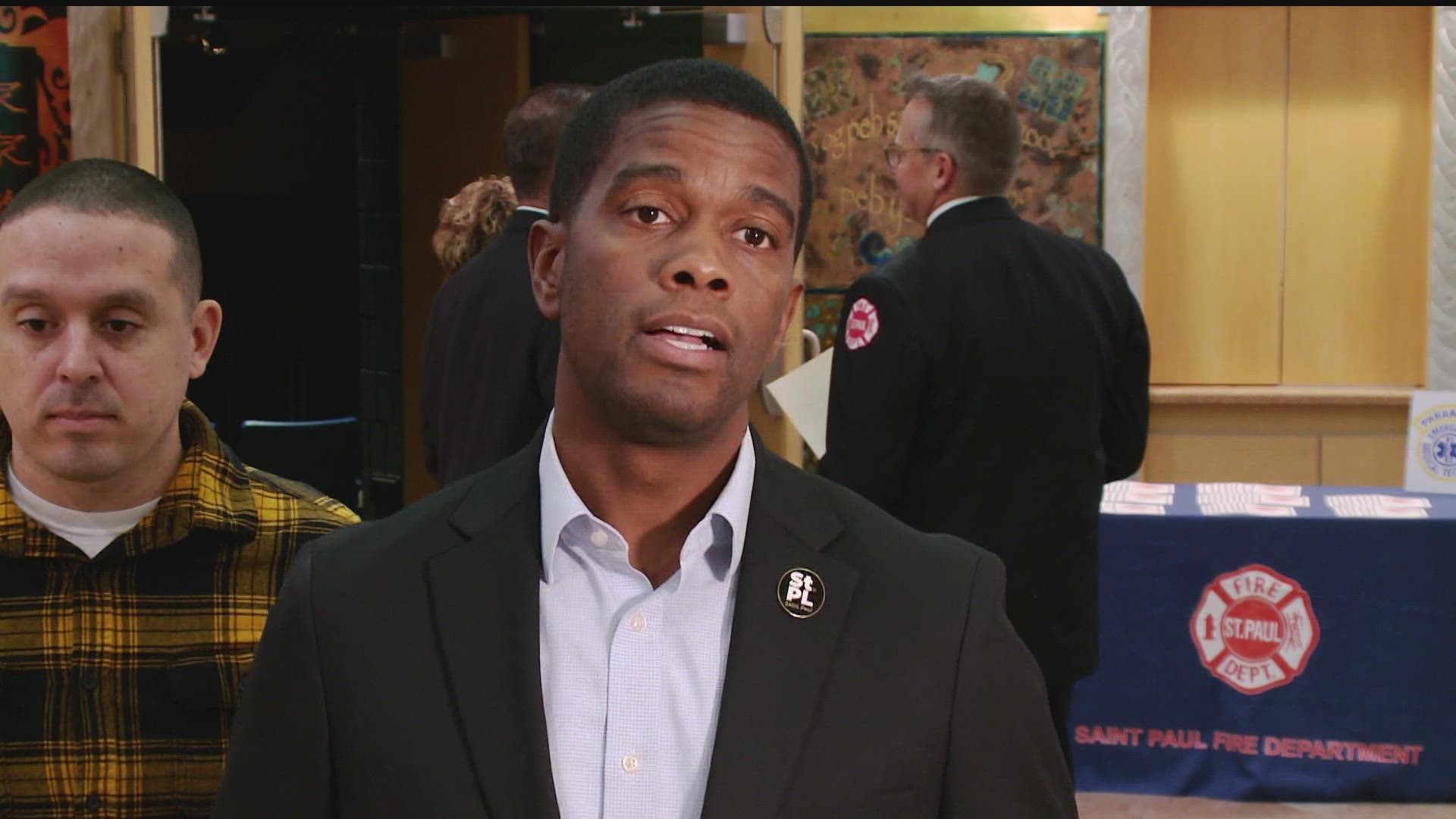ST PAUL, Minn. — The people of Saint Paul may have a big decision to make next fall, depending on how things go at the state capitol this session. Mayor Melvin Carter wants to add a one percent local sales tax to pay for street repairs and city parks.
"It’s time for us to reconstruct our streets. It’s time for us to make sure our children can count on first-rate public infrastructure in our community," Mayor Carter told reporters Wednesday.
"And it’s time for us to have a public conversation as to whether those goals are worth a penny. I think they are. I’ll look forward to hearing from Saint Paul voters their position on that."
Carter predicts the new tax would raise about a $1 billion across 20 years time, at which point it would expire. The idea has been endorsed by a majority of the city council members and local trade unions that are involved in infrastructure projects.
Minnesotan cities can't impose a local sales tax without first getting permission from the legislature and the voters. If the city council approves the idea state lawmakers would be asked to insert it into the 2023 tax bill. If that bill passes it would go on the Saint Paul city ballot, as early as November of 2023.
Currently, the sales tax in St. Paul is 7.8%, or 7-point-8 cents on the dollar at the point of purchase. Of that, 6.8 cents of that total comes from the statewide sales tax. A half cent is from the city's existing local sales tax. Another half cent is from Ramsey County transit tax.
Adding another penny to the mix would move the sales tax rate to 8.8% in the capital city, which would be higher than the 8.0% mark in Minneapolis and the same as Duluth's 8.8% sales tax rate.
The St. Paul Public Works Department has drawn up a list of 25 arterial roads that could be repaired or replaced over the 20-year life of the sales tax. The city has been playing catchup with its street network for years, devoting dollars to patch up roadways that have gone way beyond their designed life spans.
"We are currently on a 124-year replacement cycle for arterial streets here," Public Works Director Sean Kershaw explained.
"They're reconstructed at the current pace once every 124 years. It should be once every 60 years."
One of the park projects would fill in the huge blank space between Kellogg Boulevard and the Mississippi River. It's a concept that has been dubbed the Saint Paul Balcony. It would be a one-and-a-half mile long park that connect downtown to the riverfront.
"We have the largest riverfront of any capital city along the river that is undeveloped, so it's really just capitalizing on that space and utilizing it for recreation," St. Paul Parks Director Andy Rodriguez told reporters.
Mayor Carter said this is the beginning of the debate over an issue that will ultimately be decided by local voters. He said the city currently has the lowest sales tax rate of all of the First Class Cities, defined as those with 100,000 inhabitants or more.
"Our goal is to not kick the can down the road. Our goal is to have an uncomfortable conversation with our taxpayers, with our residents and say, 'We've stated an ambition for our community. This is what it would take for us to get there'."
B Kyle of the St. Paul Area Chamber of Commerce acknowledged the city's need for more revenue but said the chamber would rather see that come from the legislature in the form of Local Government Aid grants.
"To be sure, St. Paul is facing real – and unique - budget challenges. These include additional public safety resources as well as desperately needed infrastructure improvements. So I understand the thinking," read a statement from Kyle.
"That said, as we approach session, it makes sense to me that LGA modification should be the City’s first priority. St Paul is sorely underfunded and has been for years."
Mayor Carter agreed that St. Paul has experience a huge gap when it comes to local government aid. But he said that money, when and if it comes, will be needed to meet other basic city expenses.

